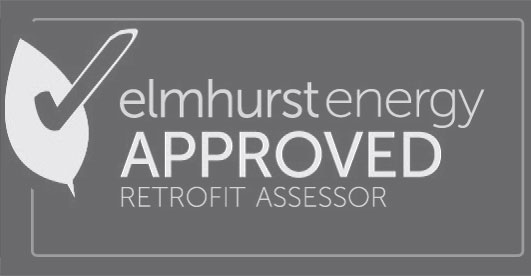Fossil fuel companies are increasingly using carbon offsets to claim they are going carbon neutral. Oil and gas giants like BP, Shell, Total Energies and Eni have all used carbon credits to deliver so-called “carbon neutral” fossil fuels.
Additionally, Eni, Shell, TotalEnergies, Chevron, ExxonMobil long term net zero strategies include substantial amounts of carbon offsetting.
According to a report released by Shell, by 2030 up to 1.5 million tonnes of CO2 will be offset globally with a value of $10-40 billion, up from $2 billion in 2021.
Now, four recent case studies registered in the Global Atlas of Environmental Justice (EJAtlas) reveal that indigenous peoples rights are being systematically violated through land dispossession, violence, militarization of their ancestral territories, loss of access to vital natural resources, and disenfranchisement.
At the same time, all the projects studied sell hot-air carbon credits, and in three of them the revenues are subject to opaque financial arrangements that marginalise and exclude local communities.
How do carbon offsets work?
Fossil fuel companies buy carbon credits in the voluntary market to offset the emissions associated with their products. Each carbon credit “offsets” one ton of CO2.
The credits are “produced” by private offsetting projects that claim to absorb CO2 such as forest plantations, or initiatives that claim to avoid emissions such as renewable energy projects or deforestation prevention, also referred to as REDD+ projects, which account for approximately 40 per cent of the carbon credits on the voluntary market.
For anyone striving for a safer climate and global justice, it is imperative to oppose voluntary carbon markets and their use to make fraudulent carbon neutral claims by fossil fuel companies.
Carbon credit certifiers, in principle, guarantee that any emissions avoidance project brings real climate benefits.
The key to issuing carbon credits from a REDD+ project is determining the baseline deforestation rate in reference areas that have similar characteristics.
The observed deforestation rate of the project area is then subtracted from the baseline to determine the “additionality” – prevented deforestation – that has resulted from the implementation of the project.
REDD+ projects sell “worthless” carbon credits
However, a joint investigation by The Guardian, Die Zeit and SourceMaterial has revealed that 94 per cent of REDD+ carbon offsets certified by the world’s leading carbon credit certifier Verra are “worthless”.
Basically, the baseline scenarios are cherry-picked and the forest conservation programmes bring no measurable additional CO2 avoidance.
Verra receives a commission for each credit they approve, creating a clear conflict of interest that incentivises the overestimation of carbon credits that can be sold.
Critics have for a long time posited that carbon offsets are nothing more than hot air to allow the fossil fuel industry to sell guilt-free fossil fuels. Even some carbon credit brokers themselves have called carbon neutral fossil fuels “obvious nonsense“.
In the four recent case studies added to the EJAtlas, each REDD+ project investigated was found to have an “inflated baseline” which greatly exaggerated deforestation prevention.
In the cases of the Cordillera Azul National Park (PNCAZ) in Peru and the Matavén Jungle Indigenous Reservation in Colombia, researchers found no “additionality” because the areas were already guaranteed legal protective status prior to the establishment of the REDD+ projects.
In other words, the carbon project cannot stop deforestation in an area that already has functioning preventative measures in place.
Similarly, in the cases of Kariba REDD+ in Zimbabwe and the Luangwa Community Forest Project in Zambia, the project’s areas are located around National Parks that have protected status. In Luangwa, the main drivers of deforestation of the reference area were found to be totally different from that of the project area.
Local communities receive few economic benefits
Revenues from the sales of carbon offsets are meant to benefit the communities living within the project area by providing alternatives to livelihoods that are theoretically causing deforestation.
However, it is common for carbon brokers that mediate between private companies and the organisations managing the offsetting projects to take a significant portion of the sales.
The carbon credit broker South Pole, which advises Verra, also receives a commission for each credit sold to international buyers.
South Pole came under scrutiny after it was found that one of its flagship projects, Kariba REDD+, issued up to 30 times more credits than it should have. Investigations revealed that South Pole executives knew this was a problem, and some employees even resigned due to the disclosures.
Additionally, South Pole earned 73 per cent more in commissions from Kariba REDD+ than was formally agreed upon through carbon market speculation.
The NGOs and enterprises that implemented the REDD+ projects in all four case studies have unverifiable financial distribution contracts.
These intermediaries are meant to ensure the revenues from sales of credits are distributed to the communities through legally binding agreements, but because there are no regulators, territorial communities are vulnerable to being taken advantage of by project promoters.
In both cases in Africa, the project enterprises were found to be registered in tax havens, and even a cryptocurrency was set up in a tax haven to sell credits originating from the Kariba REDD+ project.
In the case of PNCAZ, the Kichwa communities lack clarity on the sales of carbon credits and received no financial or economic benefits at all from the NGO that manages the project.
Opaque financial transactions leave a giant gap in accountability that makes the intended indigenous and territorial community beneficiaries the potential victims of embezzlement.
Local communities’ basic needs and traditions are denied
In PNCAZ, some farming communities were removed from the land to make way for the protected area, and instead of removing some Kichwa villages, the boundaries of the park were drawn specifically to exclude them from the protected area.
For these Kichwa communities, that meant that they were no longer allowed to hunt, fish, forage or farm on their ancestral territory without official permits that limit the number of days they can enter the protected area, leading to a loss of livelihood and even to malnutrition in some cases.
Kichwa communities also suffer encroachment onto their territories by illegal loggers and coca farmers, and when community members report these instances, they are ignored by the local authorities because they have no legally recognized land tenure rights. Even still, Kichwa community members have received death threats from the drug traffickers so that they will stay silent.
In Kariba and Luangwa, the case studies revealed disenfranchisement of local communities with regard to project governance.
Community members do not understand the project and are losing their traditional relationship to their territories due to fear of armed patrols and restrictions on who can use the land for foraging or hunting. Yet these restrictions do not apply to paying customers who travel to the project areas for safari tourism.
In the case of Luangwa, Eni has even gone so far as to become a governing partner of the REDD+ project, while failing to deliver on its promises to the residents.
This year, an Italian news crew found the oil giant built a new classroom in Luangwa but refused to entrust the building to the school, leaving it empty for over a year.
The right to free, prior and informed consent is violated
Free, prior and informed consent (FPIC) processes with local communities are required by UN standards for setting up REDD+ projects.
However, in the case of PNCAZ, Kichwa communities won a lawsuit in April of this year against the Peruvian government for violating their FPIC rights, leading the UN Committee on the Elimination of Racial Discrimination to formally demand urgent action from the state.
In Luangwa, one of the project partners, USAID, even admitted that the FPIC process was insufficient, and in all of the case studies, the territorial communities did not understand the abstract concept of carbon credits.
The question remains: would any community consent if they understood that selling carbon offsets is justifying more emissions and ultimately threatening the long-term survival of their territories due to consequences of rising temperatures and extreme weather events?
In the case of the Matavén reservation, the 16 indigenous communities created a political structure which helped them win constitutionally recognized land tenure rights prior to initiating the REDD+ project in their territory.
Of the four case studies, this was the defining factor that reduced negative effects and maximised benefits of the carbon project for the 6 First Nations stewarding the land.
Even still, some interviews with local people revealed complaints of a narrow view of conservation affecting traditional indigenous practices and knowledge, which studies have found are vital to maintaining biodiversity.
No to carbon offsets, yes to climate debt
The REDD+ carbon offset projects not only sell hot-air carbon credits that justify the perpetuation of the fossil fuel model.
They also reproduce historical injustices and asymmetrical power relationships where the wealthy, white and western minorities profit, and indigenous racialized communities, mostly in the Global South, suffer the impacts.
It is an extension of the logic that has seen a minority reaping the benefits of the fossil system over the last century and a half, while a majority is left to suffer the worst impacts of the climate and ecological crisis.
The wealthy and western elites have incurred a climate and ecological debt with all those people who have contributed little to the current crisis, but are the first and most affected by it.
For anyone striving for a safer climate and global justice, it is imperative to oppose voluntary carbon markets and their use to make fraudulent carbon neutral claims by fossil fuel companies.
In parallel, the worst climate offenders must be required to pay local communities defending the forest, not as a quid pro quo, not as a carbon offset, but as a climate and ecological debt.
These Authors
Nathaniel Rugh and Marcel Llavero-Pasquina are researchers at the Institute of Environmental Science and Technology of the Universitat Autònoma de Barcelona (ICTA-UAB) and members of the Global Environmental Justice Atlas team. X: @nathanielrugh @llaveropasquina
This article was republished from The Ecologist. Read the original here: https://theecologist.org/2023/aug/18/discrediting-carbon-credits










